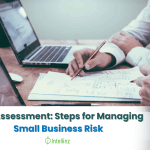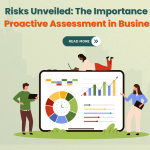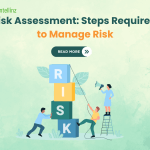Staying current on industry developments is essential for good business management. Businesses may stay competitive by monitoring and adapting to trends.
In today’s marketplaces, success requires tracking and embracing trends as they emerge, as well as tailoring your strategy to capitalize on opportunities. This necessitates a constant knowledge of market trends as well as a willingness to innovate and take calculated risks.
So, grab your coffee and a pen because this article is going to show you how to look into and evaluate trends for your business.
Shift in Digital Transformation
With the increasing speed of digital transformation, the digital revolution is continuing to transform various industries. Businesses are leveraging technology to improve customer experiences, optimize processes, and gain data-driven insights.
Cloud computing, artificial intelligence, and the Internet of Things are rapidly being used in business strategy, allowing organizations to react fast to market events and make educated decisions.
Integrating Remote Work
Businesses progressed by providing the infrastructure and technologies required for seamless virtual collaboration as distant work became a need. This trend is expected to continue as organizations see the benefits of a mixed work paradigm.
Traditional office layouts are being reconsidered by businesses because of lower overhead costs, access to a global talent pool, and improved work-life balance. Remote work minimizes overall business expenditures, office leases, and utility charges.
Companies that use a mixed work style can incorporate measures that prioritize employee well-being. Failure to accept this new strategy may result in the long-term loss of important talent.
Data-Informed Decision-Making
Data-driven decision-making is an essential component of modern company strategy. In an era of information, firms that efficiently harness and analyze data acquire a competitive advantage.
Organizations that use data analytics to make informed decisions. By gaining important insights from data, businesses can enhance operational efficiency, increase consumer targeting, and remain agile in responding to market changes.
E-commerce Future of Shopping
The future of shopping is closely linked to e-commerce’s growing dominance, which is transforming how customers discover, evaluate, and purchase things.
Shopping in the future will feature smooth transitions between online and offline platforms. Retailers will prioritize consistent and integrated experiences that allow customers to seamlessly navigate between digital platforms and physical storefronts.
Logistics and Fulfillment Innovations
Whether you’re a new internet business owner or a logistics specialist, it’s critical to stay current on the latest logistics advancements.
Logistic innovations are advancements and advances in logistics services ranging from warehousing to fulfillment to last-mile delivery.
Logistics and fulfillment technology advancements have increased the speed and efficiency of product delivery. Concepts such as same-day delivery and efficient supply chains contribute to e-commerce’s convenience and competitiveness.
In Conclusion on Business Trends
Finally, the business environment is always changing as a result of factors such as technology, consumer expectations, and global events.
To succeed in this volatile environment, businesses must accept new trends and adapt their strategies.
These themes, which include, among other things, personalization, inclusivity, and digital transformation, are impacting how successful firms will operate in the future.






